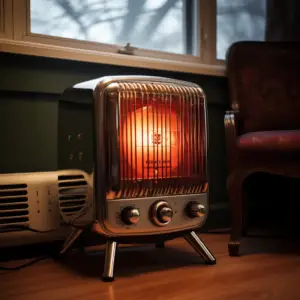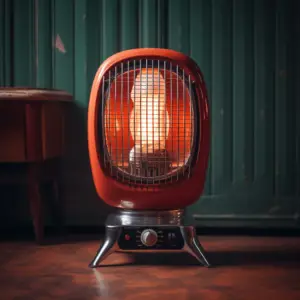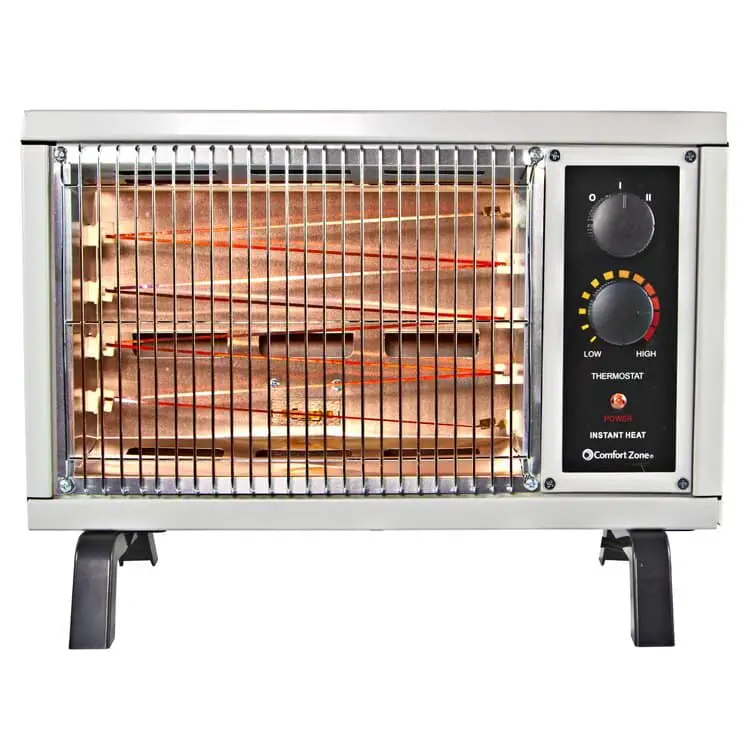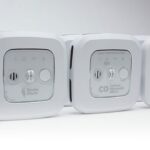Comfort Space Heaters, Although you might not need to rely on your heating system for many months of the year, heating systems are still important for those stretches of chilly nights that come along during the winter. It’s always wise to ensure that your heater work at its best during those times when you need it.
If your comfort space heater keeps shutting down, many rooms in your house are likely to be left unpleasantly cold. This problem is known as short cycling. It is a failure that can happen to all types of heating systems, and there are varied reasons for it to occur.
These automatic heaters feature a thermostat that tells the heating system how long it will have to heat the room. This can cause the heater to keep shutting off even though the room is still not warm enough.
Below are common reasons that can make a comfortable space zone heater keep shutting off:
Table of Contents
Common Reasons Why Comfort Space Heater Keep Shutting Off

Issues with the Heater Thermostat
This is probably the most common problem associated with the automatic comfort zone heating system. It occurs when the thermostat tells the heating system that your home temperature is warmer than it is; consequently, causing the heating system to shut down.
The thermostat is located inside the space heater. Comfort Space Heaters serves as a temperature regulator for the heating system and is usually set based on your preferences.
However, if the space heater overheats or the core temperature of the heater exceeds its manufacturer’s designated temperature range, the thermostat can switch off automatically.
Space heaters can be incredibly sturdy by nature, but much of the internal components and wiring are often sensitive, unable to withstand excessive heat beyond a specific range to operate safely.
The good news is that the problems with the thermostat are usually easy to fix. You just need to adjust the thermostat or resolve or replace it if it is broken. In some cases, a thermostat might be jostled loose from its contact points, either as a product defect or if you knock over the heater by accident.
When this happens, your space heater will keep shutting off unless you disconnect the heater and readjust the position of the thermostat back into its proper place. That said, any damages sustained by the thermostat will call for a replacement of the thermostat itself.
Problems with Thermocouple
Just like the thermostat, the thermocouple is located inside your heating system. You might want to check your thermostat if you’re unable to detect any issues with the thermal fuse or even circuit breakers.
Contrary to circuit breakers, which are located externally and coordinate the power supply to an entire building, a thermocouple is a small device positioned within the space heater itself.
It is responsible for shutting the unit off, but it works the same way a circuit breaker does. Therefore, if it trips or detects an abnormal surge of electricity flowing through the space heater, it automatically turns the device off every time you try to switch it back on. It will keep shutting the heater off until the internal problem can be located and corrected.
Mostly, the thermostat is triggered into action when the space heater overheats. If this occurs, you should give your heater enough time for it to cool down on its own. Hence, a thermocouple is merely a secondary warning system to another profound problem that needs to be addressed.
A Blown Fuse
Most modern space heaters are now equipped with thermal fuses nestled well within the confines of their tough plastic casing. A thermal fuse refers to a small device that protects the heater from overheating. It either blows out or melts to prevent the rest of the components located inside the heater from doing the same.
That means when a comfort space heater malfunctions in any room, the thermal fuse positioned inside the heater is usually the first barrier of protection to prevent total system failure.
Your space heater may also fail to switch on at all due to a blown fuse. If you detect a faulty fuse inside your heater, you might first need to disassemble your heater to remove and detach any clips fasteners, or screws that hold pieces of the heater interior and exterior together.
After dissembling, locate the thermal fuse and check it to see if it is burn melted, damaged, or broken. Note that a blown fuse will need to be replaced with a new one, with the same specifications as its initial compatriot.
Tripped Circuit Breaker
Various households around the globe utilize circuit breakers instead of fuses. Modern homes are usually equipped with a single grey box that houses a series of switches aligned carefully in rows, with a single primary breaker positioned at the very top. The primary circuit breaker is the central control point for power to your home.
That means if the breaker trips, this definitely cuts off the power supply to the electrical loop in the designated area under the breaker’s purview. A tripped circuit may result from a surge of electricity through the primary grid of the house; for instance, following severe lightning or thunderstorm.
To get electricity back into the room, you will need to manually open the breaker box and flip the tripped breaker back to its proper position. If the breaker keeps tripping or is damaged in any way, you will need the expertise of a proper electrician to replace the switch and reconnect the circuit.
Too Big Heater

Another reason for the comfort space heaters shutting off is having a large heater in a smaller room. An oversized heater will heat the room faster and the heater will shut off even before it has completed its cycle, causing uneven heat distribution in your home. This problem cannot be resolved with any repair; you will just have to get a smaller heater.
Dirty Air Filter
Unclean air filters can also cause your space heater to shut off without warning. If the air filter has been clogged with dust or debris, it will exude a rather foul smell. The odor alone is the first sign that you need to clean out your air filter.
Filthy air filters tend to reduce the amount of airflow that oscillates through the heater. This in turn, decreases the internal capability of the device to cool itself down during and after use. Thus, it is highly recommended that you clean out your air filter every bimonthly before it even starts to produce any unwanted smells.
Conclusion
Comfort space heaters are generally pretty reliable heating systems, but sometimes, they start showing issues like short cycling. Remember if you are not confident or do not feel comfortable tackling any of these issues alone, you can always seek assistance from someone with more experience. Make sure that you unplug your device before you start to fiddle around with it or disassemble it.


